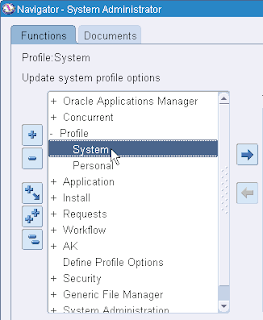Oracle Workflows are Database Applications whose definitions are stored in different Database Tables.
We can easily Upload/Download these definitions of the Workflows to the flat files using WFLOAD command line utility.
Workflow files are stored under <Application Top>/patch/115/import/US/ (Ex: PO_TOP/patch/115/import/US/powfpoag.wft)
To Upload
--------------
WFLOAD apps/<apps_password> <Access_Level> Y <upload_mode> <file_name>.wft
Example: WFLOAD apps/appspwd 0 Y FORCE powfpoag.wft
To Download
--------------------
WFLOAD apps/<apps_password> <Access_Level> Y DOWNLOAD <file_name>.wft
Example: WFLOAD apps/appspwd 0 Y DOWNLOAD powfpoag.wft
Different Access Levels Used:
0 - 9
|
Reserved for Oracle Workflow
|
10 - 19
|
Reserved for Oracle Application Library
|
20 - 99
|
Reserved for Oracle E-Business Suite
|
100 - 999
|
Reserved for Customer Organizations
|
1000
|
Public
|
Different UPLOAD modes used while uploading the WFT file to the database.
UPGRADE
|
Honors both Customization and Protection Levels of Data.
|
UPLOAD
|
Honors only Protection. Customization Levels are not respected.
|
FORCE
|
Both Customization and Protection Levels are not honored.
|
Usually all the Oracle Patches run the Workflows in UPGRADE mode and access level of 20 and hence our customizations are protected if properly preserved.




